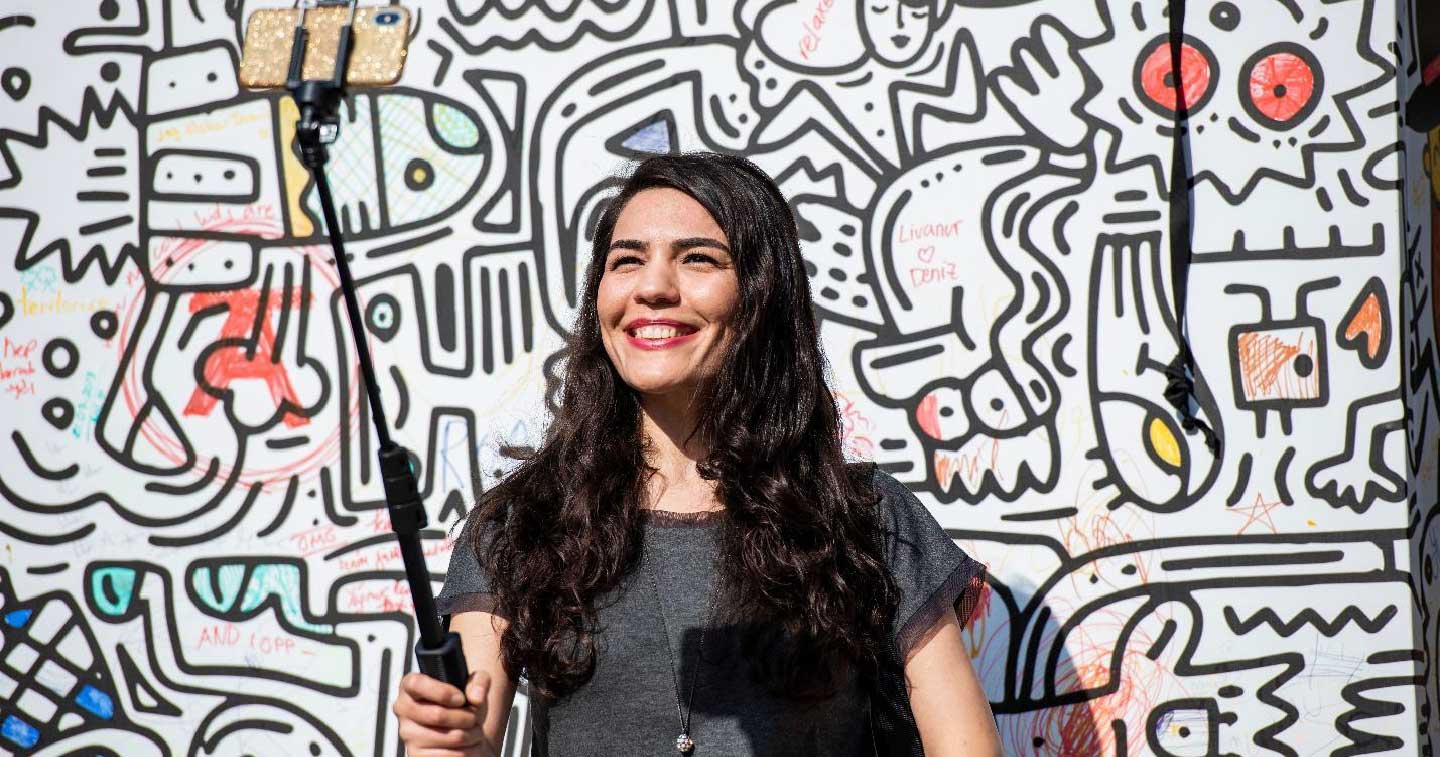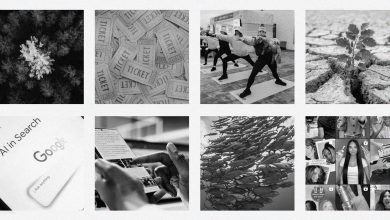words by Lani Sison
Skills readiness
Since the pandemic started, various anecdotes have surfaced of individuals who found success when they shifted careers and entered the creative economy. However, stories such as these are the exceptions rather than the rule. Covid-19 devastated the cultural and creative sectors: in the UK alone, there were 55,000 job losses within the first six months of the pandemic.
The Guardian has featured success stories of Jonathan MacMillan, Vivienne Clavering and Libby Zietsman-Brodie. While some artists have found their way back to the arts since then, others opted to change careers in response to the challenges brought by Covid-19.
Adapting to the challenges is an issue that creatives face even today. Christian Ost and Ruba Saleh’s study, published in 2021, gives a hint of what skills they may be missing and the need to develop to adapt to the changing circumstances. Their paper included the results of a survey that asked 100 arts professionals from different countries what areas they considered challenging before and because of Covid-19.
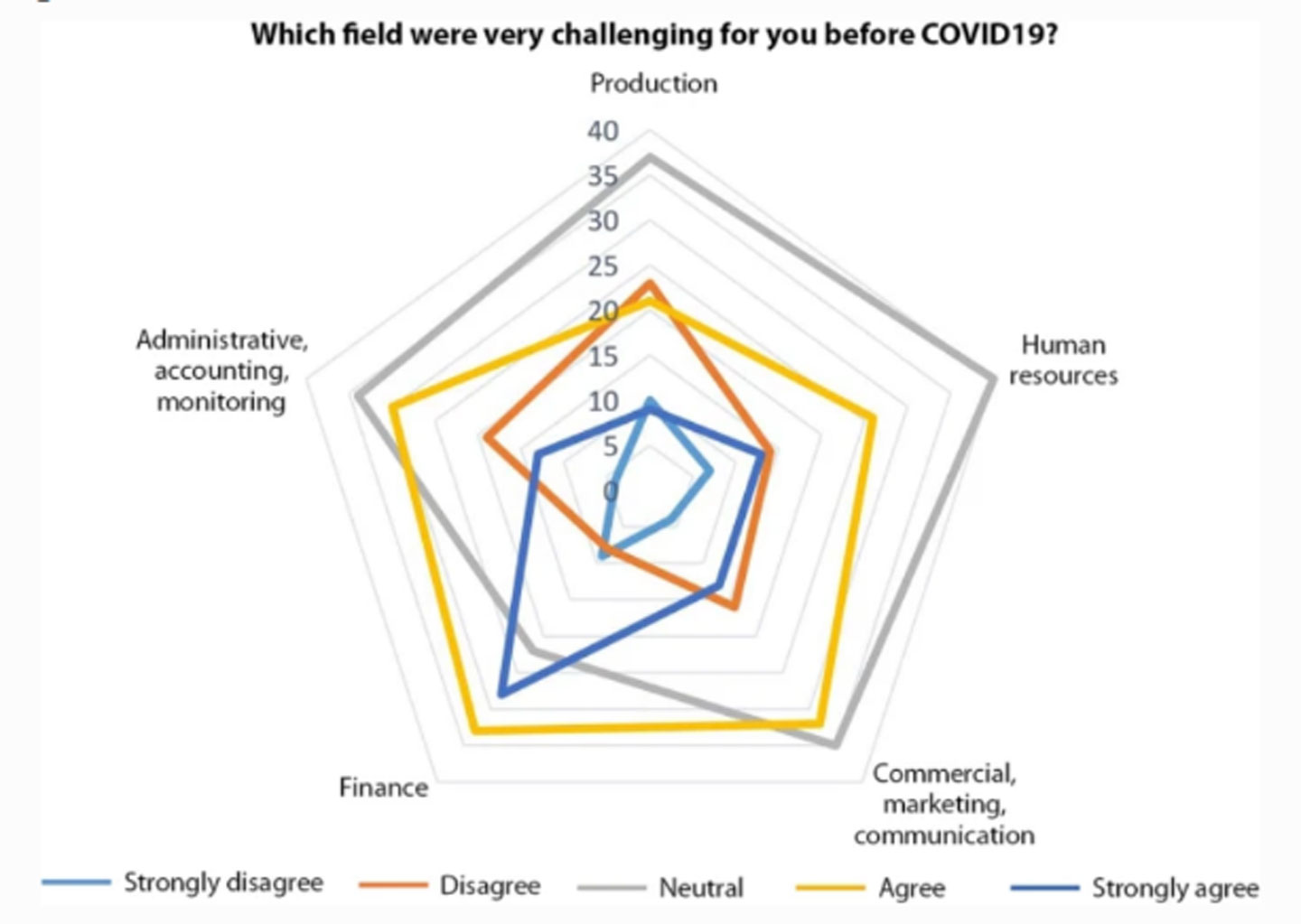
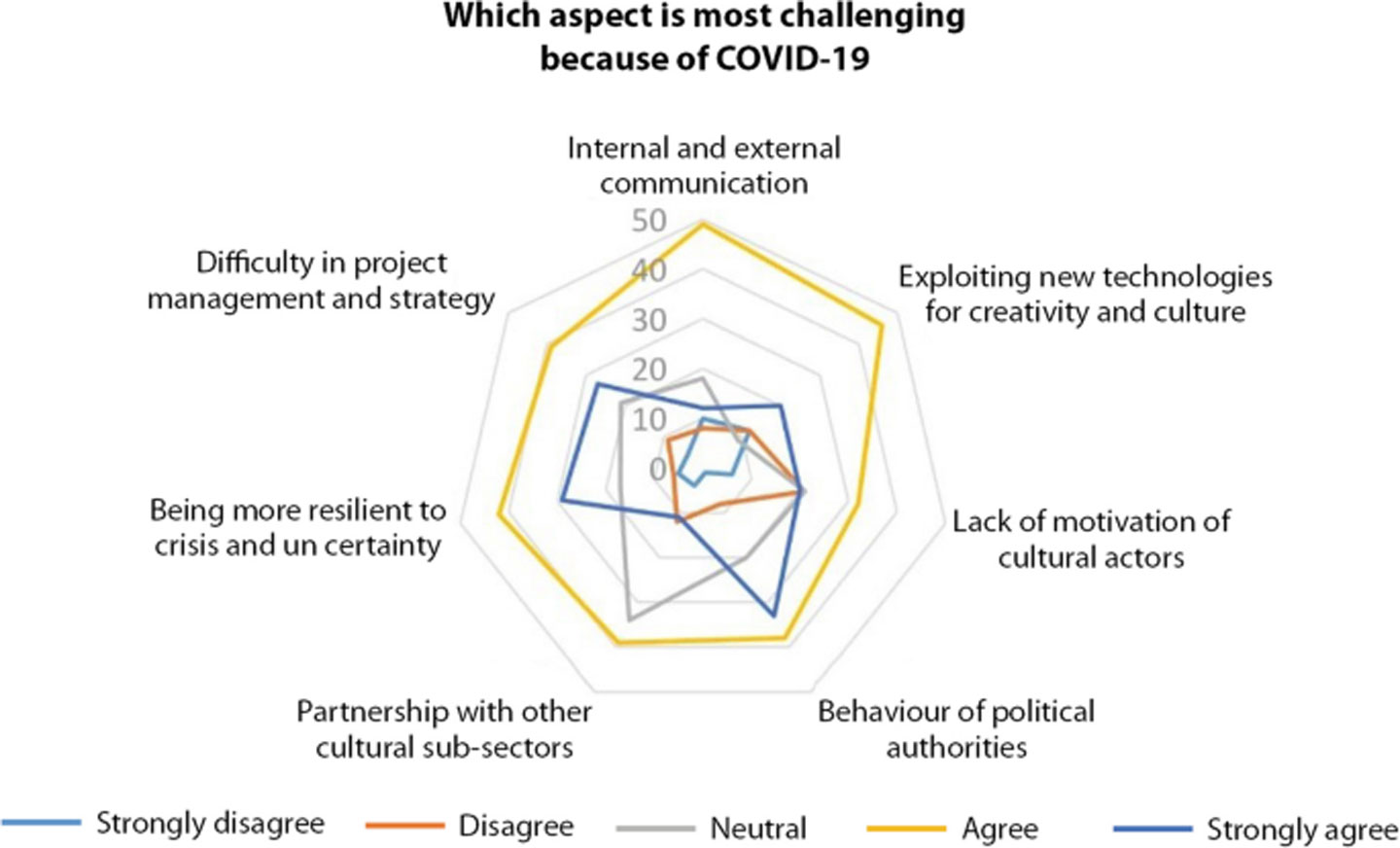
Even before Covid-19, administrative and operational tasks were already a concern among the respondents. The pandemic, however, added more challenges, including the need to learn new skills to exploit new technologies and partner with cultural sub-sectors.
From creation to evolution
“The art and cultural sector has clearly been impacted by the pandemic. With that, artists and cultural professionals have found new ways of connecting with audiences and international peers. Our aim at the British Council is to keep offering relevant programmes that help build international networks. We want to continue bringing people together so they can share their artistic work and exchange creative ideas,” explains Malaya del Rosario, Head of Arts and Creative Industries Philippines, British Council.
Organisations such as the British Council are helping creatives respond to these new challenges by linking creatives from different parts of the globe. One of its initiatives, ‘Connections through Culture’, forged links between artists from the UK and the Philippines so they can collaborate and learn from each other.
Jerome Dulin with Noémie Mendelle established a film lab between the North Luzon Cinema Guild, Inc. and the Scottish Documentary Institute. Award-winning filmmaker Baby Ruth Villarama and marketing consultancy RISE Research produced a documentary that captures the Philippine diaspora in the UK through the eyes of a young Filipina nurse. Gender advocate and lawyer Maya Tamayo linked with local governments in the Philippines and UK to come up with a roadmap towards more inclusive policies on arts, culture and the creative economy.
While the Connections Through Culture grants helped artists execute their respective projects, some had to go beyond their comfort zones and become more interdisciplinary.
Remote co-production in film
Baby Ruth learned how to co-produce a film shot in the UK from her home country. Originally set to travel to the UK, the pandemic forced her to remain in the Philippines while her UK-based counterparts did the social research and British director, Mark Adkins oversaw the shoots. Remote co-production was a new experience for her, but this experience has led her to join another project with similar arrangements.
“It helped us trust our fellow artists… Our conversations with RISE and other artists have helped us convert these ideas into a solid documentary film.”
Becoming digital facilitators
Jerome and Noémie facilitated inter- and intra-cultural exchanges among a new generation of filmmakers. The film lab honed their storytelling skills so they can share the culture and issues of local communities to wider audiences.
“Incubating and developing the talents of local artists is really important because they are the next ones who will be sharing the stories of the Filipino culture and identity,” Jerome says.
From research to practice
Maya used her research to pursue her advocacy of promoting a creative economy centred on inclusion and diversity. Her work resulted in four Philippine cities committing to use her road map as a guide in developing creative economies within their respective localities.
“I’ve always looked at research as an opportunity to connect with other people and sectors. It’s not just me taking something away from them, but also me giving something back,” Maya says.
Elements for sustaining artists
For every Baby Ruth, Jerome, Noémie and Maya who have managed to pursue new endeavours despite the pandemic, we have people like Jonathan, Vivienne and Libby looking to get out of their artistic professions. What can be done to support the sustainability of creative work?
Josephine Caust, an Honorary Principal Fellow at the University of Melbourne, proposed in her study a framework featuring four elements she says are necessary to achieve this in the Covid- 19 era: place to work, validation of work, income, and capacity to do work.
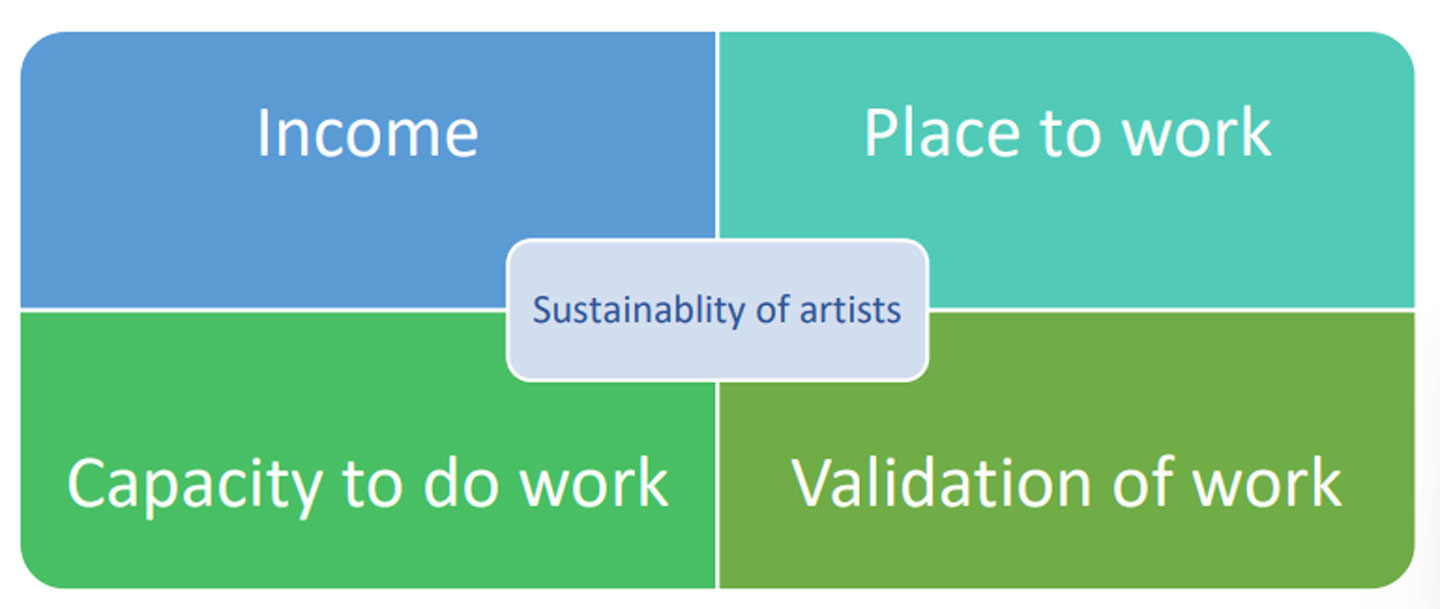
- Place to work. While digital platforms provided the means for people to enjoy art even with lockdowns in place, some audiences still prefer live events. Theatres in the UK, which were hit particularly hard by the pandemic, have experimented with various methods to recreate that experience. These included outdoor performances and blending green-screen technology with stage performances. Meanwhile, a Philadelphia-based chamber choir developed a new speaker system that enables the singers to stage concerts even while distanced from each other. The British Council and the National Museum of the Philippines staged the virtual exhibition ‘Together Apart – Art world voices that connect us now’ in 2020 to showcase thoughts of art leaders in and outside the country. Innovations such as these should be encouraged to give opportunities for the artists and their audience to interact while avoiding health risks.
- Validation of work. Artists need to feel that their work is valued and acknowledged. The study reported that some creatives felt they were invisible and disregarded. Currently, many countries do not have sufficient mechanisms to support artists. This may be partly due because most work within the informal sector of cultural and creative industries. In the Philippines, for example, freelancers are estimated to be 2 to 4 times more than those employed in the formal sector. Their status as freelancers keeps them from availing of government aid even during the pandemic. Workers in the cultural and creative sectors need to be given the same rights and privileges that workers in the formal economy enjoy.
- Income. Caroline Norbury, chief executive of Creative UK, pointed out in the same The Guardian article that featured Jonathan, Vivienne and Libby that members of the cultural and creative sectors are treated as hobbyists whose ‘creative reward is enough in and of itself’. According to Caust’s study, artists need to be entrepreneurial to survive. However, the economic impact of Covid-19 challenged the earning capacity of even the savviest creatives. Grant programmes offered by government entities such as Scotland and Colorado and non-government organisations such as the Samdani Art Foundation in Bangladesh and Para Site Hong Kong provide financing support to creatives who experienced reduction or loss of income due to Covid-19. While helpful, these are only stopgap measures. More sustainable solutions are needed for workers in the cultural and creative sectors, including freelancers, to generate sufficient incomes. A UNESCO report says that creating a sustainable cultural employment will require promoting decent economic opportunities, adequate social security and well-being of workers.
- Capacity to do work. Baby Ruth, Jerome, Noémie and Maya showed that future- proofing the cultural and creative sectors require capacitating workers not just with digital skills but also upgrading their current skillsets. Besides the ‘Connections through Culture’ grant, the British Council also introduced the Creative Communities Learning Lab, which offers online courses to capacitate creative and cultural professionals with skills they may need to navigate their way through the new normal.
For more insights, visit https://www.britishcouncil.ph/programmes/arts/creative-industries/sector-insight-policy

